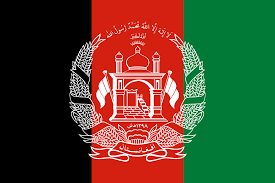The historic U.S.-Taliban agreement and the U.S.-Government of Afghanistan joint declaration toward a peace agreement signed February 2020, were both keys to the launch of Intra-Afghan Peace Negotiations on September 12, 2020. While important progress has been made, Afghanistan remains one of the world’s poorest and most fragile states, and its need for development assistance remains high. The COVID-19 pandemic has aggravated already difficult conditions, crippling an economy that had been steadily growing and overburdening already stretched health resources.
The Honourable Karina Gould, Minister of International Development, on Tuesday, November 24, 2020, announced that the Government of Canada is pledging $270 million from 2021 to 2024 in bilateral development aid to Afghanistan.
Canada has had an active development presence in Afghanistan for decades and remains steadfast in its commitment to help Afghanistan to achieve its development goals. At the July 2016 NATO summit in Warsaw, Canada committed $465 million to Afghanistan including $270 million in development assistance from 2017 to 2020. Canada’s development assistance pledge was reiterated at the October 2016 Brussels Ministerial Conference on Afghanistan. Canada works jointly with other leading international donors to ensure its aid is effective and aligned with Afghanistan’s priorities. The funding is critical to sustaining the progress already made in the country and contributes to security and stability in Afghanistan.
Canadian development initiatives in Afghanistan are largely directed toward improving health, education, empowerment of women and girls, inclusive governance, and advancement of human rights for the poorest, most marginalized, and vulnerable populations in Afghanistan.
Minister Gould announced at the 2020 Afghanistan Conference, a virtual ministerial pledging conference co-hosted by the Government of Afghanistan, the Government of Finland, and the United Nations.
“Human rights, the rights of women and girls, democracy, the rule of law—these are values that are as cherished by Afghans as they are by Canadians. We cannot allow those values to be eroded. While Canada remains deeply committed to Afghanistan, we are equally committed to working with its elected government, Afghans, and the international community to ensure that gains are not lost.” – Karina Gould, Minister of International Development
Canada’s contribution, and the Afghanistan Conference, comes at a critical point in Afghanistan’s history, as peace talks offer the Afghan people the possibility of peace for the first time in a generation.
Canada provides core support to the Afghanistan Reconstruction Trust Fund, administered by the World Bank, which finances the Government of Afghanistan priorities, including health, education, and women’s empowerment. The renewed funding includes a contribution to the Afghanistan Reconstruction Trust Fund, as well as support for projects in priority areas such as health and education; women’s empowerment; human rights; and women, peace, and security.
Also, Canada supports gender-responsive humanitarian action, based on needs, to help save lives, alleviate suffering, and support the dignity of those affected by crises. Canada is helping to bridge the humanitarian and development divide through programming that aims to link relief and recovery to development.
Canada’s ongoing support, along with that of the wider international community has enabled Afghanistan to make substantial progress, most notably in areas Canada has prioritized: major reductions to the child mortality rate; increased education enrolment, particularly for girls; an expansion of women’s rights; and greater sustainability of security forces.


